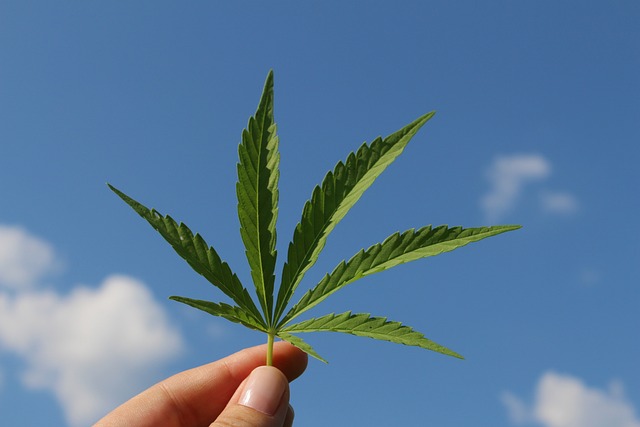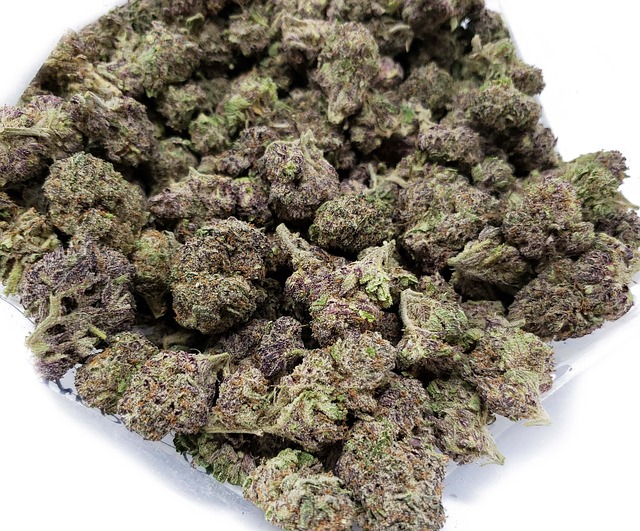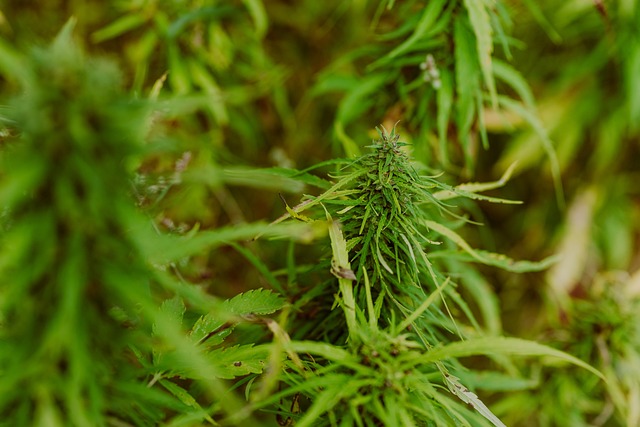
The article discusses the therapeutic potential of THCA flower, a non-psychoactive compound found in cannabis that offers wellness benefits such as relaxation, pain relief, and anti-inflammatory effects. Unlike its heated form THC, THCA does not induce a 'high' and is being studied for its health benefits including anti-nausea and neuroprotective properties. Users can consume THCA flower through various methods like smoking, vaporizing, or culinary use after decarboxylation. It's important to note the legal status of such products in your area before use. The THCA flower contains a range of beneficial compounds like cannabinolic acid (CBDA), terpenes, and flavonoids that work synergistically for enhanced effects. These compounds contribute to its anti-inflammatory, antioxidant, and mood-enhancing properties, making it an attractive option for those interested in the wellness benefits of cannabis without the psychoactive impact. Consumers are advised to consult healthcare professionals and consider timing of intake based on personal health objectives. The section underscores the importance of understanding THCA flower's effects and benefits for informed health decisions, with an expectation that ongoing research will further clarify its efficacy and applications in wellness.
Explore the burgeoning realm of THCA flower, a natural compound gaining attention for its potential effects and benefits. This article delves into the science behind its phytochemical makeup, offering insights into how it interacts within our systems. We’ll guide you through practical tips to seamlessly integrate THCA flower into your wellness routine, highlighting its promising properties without the psychoactive effects associated with THC. Join us as we dissect the intricacies of this non-intoxicating cannabinoid and its role in promoting health and balance.
- Unlocking the Potential of THCA Flower: A Deep Dive into Its Effects and Benefits
- The Science Behind THCA Flower: Understanding Its Phytochemical Composition
- Practical Tips for Incorporating THCA Flower into Your Wellness Routine
Unlocking the Potential of THCA Flower: A Deep Dive into Its Effects and Benefits

THCA flower, rich in tetrahydrocannabinolic acid (THCA), is garnering attention for its potential wellness benefits and distinct effects. Unlike its decarboxylated form THC, THCA exists naturally in raw cannabis plants and possesses a unique profile that interacts with the body’s endocannabinoid system. Preliminary research suggests that THCA may offer therapeutic properties without the psychoactive effects associated with THC. Users report feelings of relaxation and pain relief without the ‘high’ typically experienced with cannabis consumption. The potential benefits of THCA flower extend to anti-inflammatory, anti-nausea, and neuroprotective effects, making it a subject of interest for those exploring alternative wellness solutions.
Incorporating THCA flower into one’s routine can be done through various methods, including smoking, vaporizing, or infusing it into edibles post-decarboxylation. It’s crucial to understand the legal status of cannabis in your region before consumption, as laws vary widely. For those seeking the potential benefits of THCA without psychoactive effects, it’s important to source high-THCA strains and to consume responsibly. The effects of THCA flower can vary based on individual physiology, dosage, and strain potency. Users often report a sense of calm and clear-headedness, making it an appealing option for those who prefer non-intoxicating cannabinoid products. As research continues to evolve, the potential of THCA flower in the realm of wellness is becoming increasingly clear, offering a promising alternative within the cannabis spectrum.
The Science Behind THCA Flower: Understanding Its Phytochemical Composition

Delta-9-tetrahydrocannabinolic acid (THCA) is the non-psychoactive precursor to the well-known cannabinoid delta-9-tetrahydrocannabinol (THC). Found abundantly in raw cannabis flowers, THCA possesses a unique phytochemical composition that contributes to its potential health and wellness effects and benefits. Research has shown that THCA interacts with the body’s endocannabinoid system through its affinity for both CB1 and CB2 receptors, offering a distinct set of properties compared to its psychoactive counterpart, THC. This interaction may influence various physiological processes, including pain sensation, inflammation response, and immune function.
The flower’s phytochemical makeup also includes other cannabinoids like cannabidiolic acid (CBDA), which has its own set of benefits, as well as a plethora of terpenes and flavonoids. These compounds work synergistically to modulate the effects of THCA, enhancing its potential therapeutic properties. Terpenes, for example, contribute to the unique aromatic profiles of cannabis strains and may influence mood and cognitive function. Flavonoids, on the other hand, play a role in the plant’s defense mechanisms and could have anti-inflammatory and antioxidant effects. Together with THCA, these compounds offer a complex interplay that may lead to various wellness outcomes, making the study of THCA flower effects and benefits an intriguing subject within phytochemical research. Understanding this composition is crucial for unlocking the full potential of cannabis and its derivatives in promoting health and well-being.
Practical Tips for Incorporating THCA Flower into Your Wellness Routine

When incorporating THCA flower into your wellness routine, it’s crucial to understand its unique properties and how they can complement your health practices. THCA, or tetrahydrocannabinolic acid, is the raw form of THC, the psychoactive compound found in cannabis. Unlike its heated counterpart, THCA is non-psychoactive, offering potential benefits without the intoxicating effects. It’s often associated with anti-inflammatory, pain-relieving, and potential neuroprotective qualities, which can be beneficial for a variety of wellness goals.
To fully harness the THCA flower effects and benefits, consider its consumption methods. One practical approach is to use it in raw form by incorporating it into your diet. You can infuse THCA flowers into smoothies, teas, or salads, allowing you to enjoy its potential benefits throughout the day. For those seeking a more targeted effect, vaporizing the THCA flower at lower temperatures can preserve its integrity and provide a gentle, therapeutic experience. Always start with a low dose to gauge your body’s response before gradually increasing as needed. Additionally, timing your intake with your wellness routine—such as using it in the evening to promote relaxation or during a workout for potential anti-inflammatory support—can enhance its effects and benefits tailored to your specific needs. As with any supplement, consistency is key, and regular use may yield the most noticeable effects over time. Always consult with a healthcare professional before making significant changes to your wellness routine, especially when incorporating new substances like THCA flower.
exploration of THCA flower has shed light on its promising effects and benefits, offering a natural alternative for wellness seekers. By understanding its phytochemical composition, we can better appreciate the potential health advantages it may offer. The practical tips provided aim to guide consumers in safely and effectively integrating THCA flower into their daily routines, ensuring they can harness its benefits with confidence. As research continues to evolve, the spotlight on THCA flower effects and benefits is poised to grow, potentially carving out a significant role in the wellness landscape.


